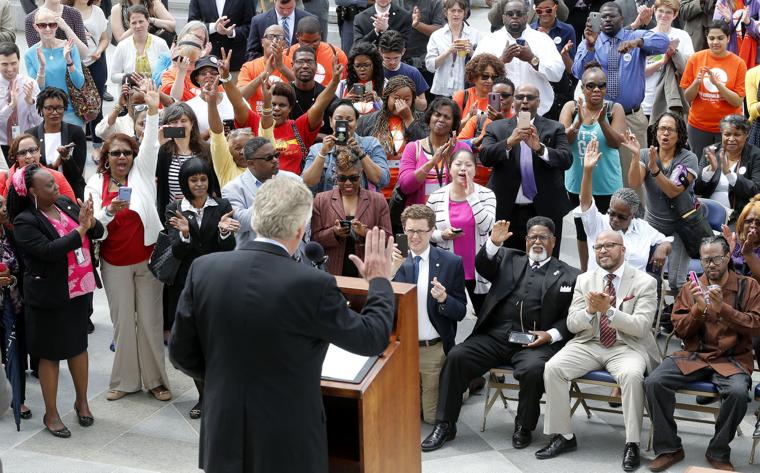
In 2006, Mazie Hirono was elected to the U.S. Senate. She was the first and only Asian-American woman U.S. Senator and the first woman Senator from Hawaii. A year ago, today, the people of Washington’s 7th Congressional District elected Pramila Jayapal to the United States House of Representatives. Pramila Jayapal was the first Indian-American woman elected to Congress. On the same day, in Minnesota, Ilhan Omar won a Minnesota House seat, making her the first Somali-American legislator in the history of the United States. Yesterday, Virginia voters decided to smash a few more glass ceilings, and elected Danica Roem, Elizabeth Guzman, Hala Ayala, Kathy Tran, Dawn Adams, Jennifer Carroll Foy.
Here’s the list of firsts. Danica Roem is the first openly transgender person to win elective office in Virginia. Elizabeth Guzman and Hala Ayala are the first Latinas elected to Virginia’s House of Delegates. Elizabeth Guzman is also the first social worker and the first AFSCME member elected to the House of Delegates. Kathy Tran is the first Asian American woman elected to the House of Delegates. Dawn Adams is the first open lesbian elected to the House of Delegates. Jennifer Carroll Foy is the first public defender elected to the House of Delegates. That’s a lot of firsts, and that’s a whole lot of women.
Who voted these first women into office? Extrapolating from those who elected Ralph Northam to be the next Governor of Virginia, women. 61% of all women voted Democratic. 91% of Black women voted Democratic. 58% of women with college degrees voted Democratic. 54% of married women voted Democratic, and 77% of women who are not married voted Democratic. The turnout yesterday was the highest in 20 years for a gubernatorial race. That’s a whole lot of women.
There were other firsts in the Commonwealth. Voters elected Chris Hurst, a first-time candidate and a leading gun control advocate. Voters also chose Justin Fairfax, the first African American elected to a Virginia statewide office since 1989.
Thanks to the great work of Governor Terry McAuliffe and New Virginia Majority, thousands of formerly incarcerated people – including LaVaughn Williams and Brianna Ross – voted for the first time.
Virginians decided yesterday, and we decided to move forward, not back. Virginians decided to remember and honor Heather Heyer, whose last, and lasting, public statement was, “If you’re not outraged, you’re not paying attention.” In the words of Sojourner Truth, “If the first woman God ever made was strong enough to turn the world upside down all alone, these women together ought to be able to turn it back, and get it right side up again!” And Mary Harris Jones roars in response, “Pray for the dead, and fight like hell for the living!” We’re outraged, we voted, and we’re going to keep on voting, organizing, mobilizing, and moving the agenda forward.

(Photo Credit: The New York Times / Chet Strange) (Infographic: The Washington Post)

